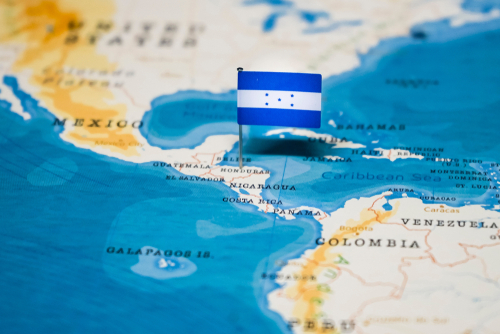In a bold move to protect American interests and push back against Chinese expansionism, Secretary of Defense Pete Hegseth has declared that the United States will not allow communist China to gain control over the Panama Canal. The announcement marks a major shift in policy and signals growing resistance to Beijing’s Belt and Road Initiative in the Western Hemisphere.
U.S. Asserts Power Over Key Trade Route
Speaking during a high-level visit to Panama, Secretary Hegseth made it clear: “The United States of America will not allow communist China or any other country to threaten the canal’s operation or integrity.” His visit underscores a renewed American presence in Central America and a clear challenge to China’s global ambitions.
Pier 3 tangibly represents America’s and Panama’s shared commitment to the Panama Canal’s security. Thanks to over $5 million in support from @USACEHQ, we have refurbished this pier. pic.twitter.com/tjJDzygniu
— Secretary of Defense Pete Hegseth (@SecDef) April 8, 2025
The Panama Canal, responsible for roughly 6% of all global trade, is a vital corridor connecting the Atlantic and Pacific Oceans. Chinese companies currently operate port facilities on both ends of the canal, raising alarms in Washington over potential economic and security threats.
Panama Reverses Course on China Deals
In a major shift away from Beijing, Panama has officially pulled out of its 2017 Belt and Road Initiative agreements. The move signals a decisive turn toward the United States and marks a significant diplomatic win for the Trump administration.
We will take back Panama Canal from China’s influence — SecDef Hegseth pic.twitter.com/9s1K0tcsqE
— RT (@RT_com) April 8, 2025
Secretary Hegseth praised the decision, stating, “Together, we will take back the Panama Canal from China’s influence.” He also emphasized new joint military exercises and intelligence-sharing operations aimed at curbing China’s foothold in the region.
The strategic message is clear: America is reclaiming its role as the dominant power in the hemisphere and is ready to protect critical global infrastructure from communist interference.
Strengthening Security and Sovereignty
U.S. defense officials have raised concerns that Chinese-installed technology near the canal could be used for surveillance or intelligence gathering. “This makes Panama and the United States less secure, less prosperous, less sovereign,” Hegseth warned during his address.
SecDef Pete Hegseth with the Panama Canal to his back just named checked China:
"I want to be very clear: China did not build this canal, China does not operate this canal, and China will not weaponize this canal."
— Charlie Kirk (@charliekirk11) April 8, 2025
He reassured allies that the canal remains under Western protection: “China did not build, does not operate, and will not weaponize the canal.” Moving forward, the United States is expected to expand its security presence in the region and deepen military ties with Panama to keep the canal free from foreign control.
With the Belt and Road Initiative losing ground in Latin America, the Trump administration is once again placing America back at the center of global leadership—starting with the heart of global trade.

